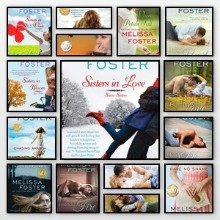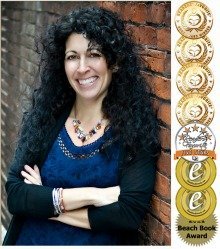 If you read Part I of this series, then you know that I began querying by phone—yeah, I know ** eyes roll**, but I didn’t know any better. That’s why I’m sharing this post, because we are not all the same. There are plotters and pantzers, obviously,
If you read Part I of this series, then you know that I began querying by phone—yeah, I know ** eyes roll**, but I didn’t know any better. That’s why I’m sharing this post, because we are not all the same. There are plotters and pantzers, obviously, I’m was the latter (okay, so I’m still a pantzer in some areas). I wanted to share what I've learned about querying with other aspiring authors. It's a process that seems so straight forward, and yet, it took me two years to figure out that all that "fluff" that I deemed necessary in my query letters (surely they'd want to know that I was an HR Director–NOT), was simply not important in the publishing world.
Querying is a necessary and painful process; there are no two ways about it. You’ve given birth to a manuscript, nurtured it until you felt it was ready for real-world eyes to evaluate it’s worthiness, and now, it’s time for the next step—querying literary agents. Put on your thick-skin suit and let’s make sure you have it all under control.
Let’s start with what it really means to query. You can research “querying literary agents” and Google will give you pages of websites. Read them. Read every one of them if you can. It’s important to understand that although the basics of querying are the same for most literary agents, each agent may have a different set of submission guidelines.
RESEARCH
Researching literary agents is a step that should not be skipped. Sure, you can jump onto http://agentquery.com/ or www.querytracker.net and type in Fiction. You’ll be presented with a list of hundreds of agents. Both of those sites are valuable resources. I suggest that you get to know them well. Before you shoot off letters to each of those agents, take the time to read their websites, look them up on Publisher’s Marketplace. Check out who they represent, when they made their last deal, and, most importantly, if they rep books similar to yours, and are currently accepting queries. Read their submission guidelines, and then adhere to them—otherwise you’ll waste oodles of your time, and theirs.
.jpg) WHAT SHOULD THE QUERY LETTER INCLUDE?
WHAT SHOULD THE QUERY LETTER INCLUDE?
A query is a one-page letter that should hook the agent into wanting to know more about your work. It should consist of roughly three succinct paragraphs (sometimes the summary includes two brief paragraphs, bringing your total to four): Introduction, book summary, and bio.
INTRODUCTION
The introduction to your query letter should let the agent know these important items:
- How you found them, or why you chose to query them (specifically)
- The title, word count, and genre of your manuscript
Literary agents are busy. Now that you have hand selected each agent that you will query, it’s time to let them know just how special they are. There are few nevers in querying, but they’re important to pass along.
- Never broadcast email queries
- Never begin your query with, Dear Agent, or Dear (insert agent’s first name).
You will despise receiving form rejection letters. Don’t give your potential agent the opportunity to feel that let down. On the other hand, addressing an agent by their first name can come across disrespectful. Address them by their last name, i.e.: Dear Ms. Bent. Always lead respectfully.
SUMMARY
Writing the summary of your book in a succinct fashion, meaning one or two short paragraphs, will probably be the most difficult thing you’ve ever done. Even more trying than writing your entire manuscript. Take your time. The query is what will make or break your chances of hooking an agent. Read as many websites as you can about query letters, surf the blogs of your favorite literary agents, check out http://queryshark.blogspot.com/. The content is invaluable.
The summary is critical. It should hook the reader immediately — explain the plot of the book, a bit about the characters and the dilemma, and leave the agent wanting more. There is no need to describe each and every character or subplot. Your summary should be similar to the summary that you see on the back of any published book.
Let me clue you in on a little industry secret. You will want to pull your hair out and scream, maybe even give up writing when this little summary feels insurmountable. Most everyone does. Don’t give up. You CAN do this. It just takes stepping back and brainstorming a bit with your beta readers, friends, and family. Read the back of every book you can get your hands on, and start taking apart your story until you find the few essential cogs that carry your reader forward.
BIO
Brag time! Well, sort of. My first query letter included everything from how many children I have to my entire work history. I’m sure the agents who read it heard, “Blah, blah, blah” in their heads.
Literary agents are busy people trying to make a living selling our books. This might seem harsh, but the bottom line of what they care about is your platform (ie: how many people you know that will line up to buy your books because of some professional association) and your publishing experience. They’re mildly interested in why you feel you were the perfect person to write the manuscript, but I’d stick to the facts. If you are first time author with no platform, you can simply state something similar to, “I have been a stay-at-home mother for sixteen years and THESE DAMN KIDS is my first manuscript.” Short is okay, lying, embellishing, and adding words for the sake of pumping up your query is not. Be straightforward and honest.
BEFORE SENDING
Double, triple, and quadruple check your spelling and content. It's a good idea to read it aloud, or have someone read it aloud to you. I can't tell you how  many times I sent a query, only to realize that I failed to sign my name or somehow forgot to include the agent's name. Take your time. This is not the time to rush.
many times I sent a query, only to realize that I failed to sign my name or somehow forgot to include the agent's name. Take your time. This is not the time to rush.
KEEPING TRACK OF QUERIES
You've done all of your research and you're ready to roll out a few queries. Congratulations! Be sure to keep a list of the agents that you submit your work to. I recommend www.querytracker.net for that purpose. They have a great database tracking system that allows you to keep detailed notes and send queries. You can even share your feedback with others.
THINGS TO REMEMBER (TO KEEP YOUR SANITY)
Books are like ice cream, they come in many different genres because not one genre, or even writing style, is right for eveyrone. It's important to remember that while one agent might turn your work away, another might love it. Reading is subjective, and you should keep that in mind. THE HELP was turned down over 60 times by literary agents. Keep trying. If all of your queries are denied, then it might be time to look at the feedback more seriously and consider if there are any similar comments that have merit. If you try to rewrite your manscript for each agent that suggests changes, you'll likely go a little insane, however, if you connect with an agent that wants rewrites and you feel good about what's suggested, go for it!
There's a big difference between what publishing professionals will accept and what our typical readers will accept and enjoy. If you decide to go the traditionally published route, then be ready to make some changes (for the better). It is a long and arduous process, so sit back and try to enjoy it. While you are querying is the perfect time to begin your next manuscript!
The process of querying is a difficult one. As authors, we pour our souls into our books, sometimes spending upwards of a year to write our manuscripts. The truth of querying is that everyone is doing it, which means that agents are overloaded. Your query has to be shine. It has to stand on the quality of its writing, above each of the others without any tricks or flashy fonts. Use Times New Roman 12 point, stick to the rules, and then cross your fingers, toes, and even your eyes.

Stay tuned for Part III: Agent, Indie, or Self-pubbing—Which Is Right For You?
If you're a part of the writing community, stay tuned for the launch of the Women's Lit Cafe, bridging the gap between authors and readers! Free promotions to the writing community.
To learn more about me, see my interviews and articles.
To check out my books, click HERE.



 Melissa Foster is a New York Time and USA Today bestselling and award-winning author. She writes contemporary romance, new adult, contemporary women's fiction, suspense, and historical fiction with emotionally compelling characters that stay with you long after you turn the last page.
Melissa Foster is a New York Time and USA Today bestselling and award-winning author. She writes contemporary romance, new adult, contemporary women's fiction, suspense, and historical fiction with emotionally compelling characters that stay with you long after you turn the last page.